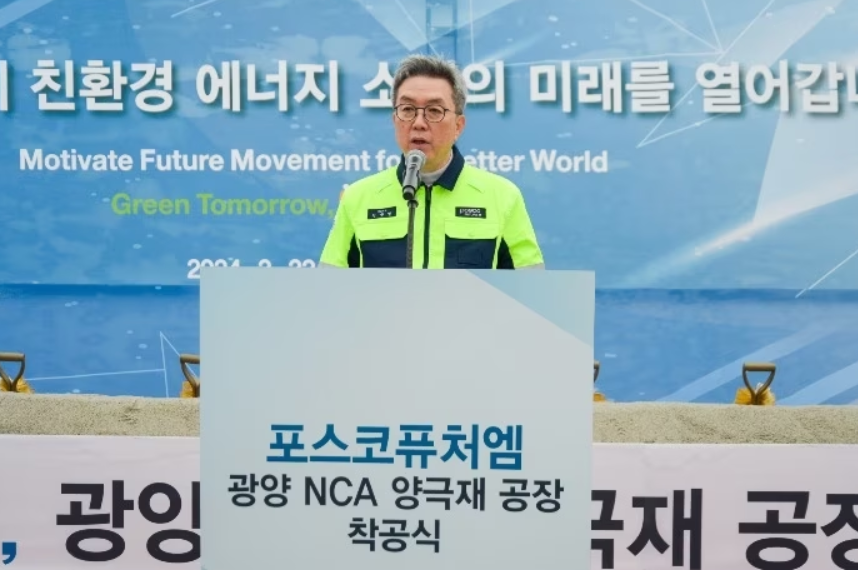POSCO Future M Co. ventures into fifth cathode plant for NCA batteries
On February 22, 2024, POSCO Future M Co., a leading supplier of battery materials, commenced construction on its fifth cathode materials plant in Gwangyang, South Korea. This move aims to establish the complex in South Jeolla Province as the largest manufacturing cluster for cathode materials globally in terms of capacity.

The new facility is projected to manufacture 52,500 tonnes of cathode materials annually, tailored for nickel, cobalt, and aluminium (NCA) batteries commonly used in electric vehicles. This production capacity will adequately power approximately 580,000 EVs with 60 kilowatt-hour batteries. Notably, these cathode materials will be exclusively provided to Samsung SDI Co.
The South Korean company announced that upon its scheduled completion by April 2025, it will enhance the capacity of cathode materials at its Gwangyang complex under POSCO Future M to 142,500 tonnes, establishing the world's largest capacity for a single manufacturing cluster of these materials.
Kim Jun-Hyung, the Chief Executive Officer of POSCO Future M, said in the groundbreaking ceremony, "Without delay, we will push ahead with our goal of producing one million-tonne cathodes annually by 2030."
In March of the preceding year, POSCO Future M commenced the production of single-crystal cathodes tailored for nickel, cobalt, manganese, and aluminium (NCMA) batteries, positioning itself as the inaugural Korean battery materials firm to undertake such production. This innovation is heralded as a pivotal advancement in the electric vehicle battery market, offering reduced fire risks during charging and discharging, heightened thermal stability, and prolonged battery lifespan compared to conventional cathodes.
As part of its expansion strategy, POSCO Future M intends to construct two additional cathode materials plants in Gwangyang to elevate its annual production capacity to a minimum of 200,000 tonnes at the site.
POSCO Future M is South Korea's exclusive manufacturer of anode materials for EV batteries. Relying entirely on graphite imports from China, it produces anode materials based on natural graphite. During a press briefing preceding the groundbreaking event, Kim mentioned that the company is contemplating investments in a natural graphite mine in Africa, potentially in Madagascar. This move aims to capitalise on tax incentives the Inflation Reduction Act (IRA) provides.
"We are contemplating an investment and will soon disclose specifics," he stated, alluding to the potential investment in an African graphite mine.
Under the IRA, 50 per cent of critical minerals and materials used in EV batteries must originate from North America or its free trade associates.
This news is also available on our App 'AlCircle News' Android | iOS



























